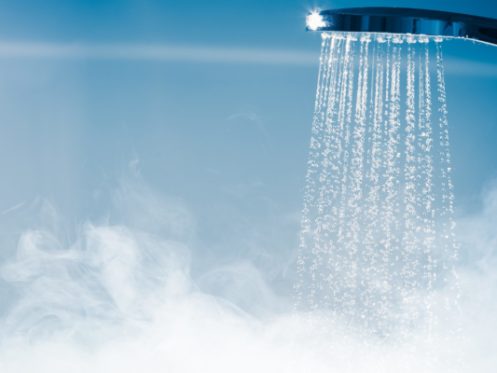Potential Reasons Why Your Water Isn’t Hot
Even though we rely on water heaters so often throughout the day, most of us never give the units much thought until we suddenly find ourselves without hot water. This issue can be incredibly frustrating if you’re trying to do the dishes or take a quick shower before work, and it can occur for a variety of different reasons. Here is a closer look at some of the different issues that can prevent your water heater from providing hot water and what you can do to overcome them.
The Water Heater Needs to Reheat
One issue with traditional water heaters is that they can only store a limited amount of hot water. Once this water is gone, it can take anywhere from 30 minutes to two hours for the water inside the tank to fully reheat. If you’ve done lots of laundry recently, taken long showers, or otherwise used more hot water than normal, it may simply be that you’ve used up all of the hot water in the tank and you need to wait for it to recover. If you still don’t have hot water within a few hours, it means that either your water heater isn’t on or there is some issue preventing it from working correctly.
The Pilot Light Is Out or Malfunctioning
Many gas water heaters still use a traditional standing pilot light. A standing pilot light produces a constant flame that works to ignite the gas burners whenever the unit needs to reheat the water in its tank. If your water heater does have a standing pilot, the first thing you’ll want to do is make sure that it is still relit. If the pilot isn’t lit, you will need to try to relight it and then wait for an hour or two for the unit to fully reheat.
Before relighting the pilot, you should always shut the gas supply off for a few minutes. This allows any gas in the unit and in the gas line to dissipate, which is important as this can both create a safety hazard and also prevent the pilot from igniting. After letting the unit sit, turn the control knob to the “Pilot” position and then press it in as far as it goes and hold it.
You can then use your other hand to press the igniter button repeatedly until you see a flame. If you don’t see a spark when you press the igniter button, you will need to use a lighter or matches to manually light the pilot. Once the pilot is lit, continue holding the knob in for around 30 seconds. This ensures that the thermocouple can detect the flame so that the pilot stays lit.
If you can’t get the pilot to light or it won’t stay lit, it usually indicates that there is some issue with the thermocouple or that the pilot gas tube is clogged. The thermocouple is a thin metal rod that sits directly within the pilot flame. It works by detecting the heat from the flame in order to open and close the gas valve. If the thermocouple can’t detect the flame, the gas valve won’t open, and the pilot will go out as soon as you release the control knob. This can occur because the thermocouple is broken, but it more commonly happens because it is dirty or bent to where it no longer touches the flame.
Gas Supply Problems
If your gas supply ever goes out for any reason, even just for a second, it will cause the pilot light to go out instantly. If you can’t ever get the pilot to light, it could be that there is an interruption in the gas supply coming into your house. You can check this by seeing if your furnace or other gas appliances are working. If the issue is only with your water heater, it may be that the gas valve is broken or clogged or that the gas line is kinked. You should also check to make sure that the gas shut-off valve is fully open.
Tripped Circuit Breaker
If you have an electric water heater, it could be that there was a power surge or some other issue that tripped the circuit breaker. If the breaker is tripped, you will need to reset it and then wait until the unit has enough time to fully reheat. There are some situations where the circuit breaker will continually trip every time the water heater tries to turn on, and this is something that you will need to have inspected by a professional.
Faulty Temperature Control
Another possible issue is that the temperature control in the unit isn’t working properly. This can lead to the unit not heating often enough or shutting off too quickly and thus your water always staying colder. Faulty temperature control can also result in the unit heating too much and the water is far too hot. If your water is too cold, you can try to turn the temperature up as high as it will go. If this brings the water back up close to the normal temperature, it most likely indicates that the temperature control isn’t working correctly and needs to be replaced.
Worn-Out Heating Element
Electric water heaters have two heating elements, one located towards the bottom of the tank and one higher up. If you don’t have your water heater drained and flushed at least once a year, the lower heating element will often wear out or fail due to all the sediment that builds up inside the bottom of the tank.
When this happens, your only options are to either replace the heating element or the entire water heater. Replacing the heating element isn’t a bad option if your unit is only a few years old, but you are usually better off installing a new water heater if your current unit is 10 or more years old.
Sediment Buildup Inside the Tank
Sediment buildup can also interfere with the ability of a gas water heater to work properly. All of the sediment at the bottom of the tank can act as an insulator and hold onto much of the heat produced by the unit’s burners. This can result in the unit heating extremely slowly or make it so that it can struggle to ever raise the temperature of the water fully.
Sediment buildup can also cause hot spots to form that can corrode and weaken the tank and eventually cause it to leak. Sediment is also the reason why many older water heaters make loud banging or knocking noises whenever they’re running. Luckily, all of these issues can easily be avoided by making sure to have your water heater flushed every year.
Expert Water Heater and Plumbing Services in San Jose
If you’re experiencing any issues with your water heater, Plumbtree Plumbing & Rooter has you covered. We service and repair all types of water heaters, including gas and electric traditional and tankless units, and our team also specializes in water heater replacement and installation. In addition, we work on most other plumbing fixtures and offer a range of water, drain, sewer, and gas services. Give us a call today to schedule a time to have your water heater inspected or if you need any other plumbing service.

